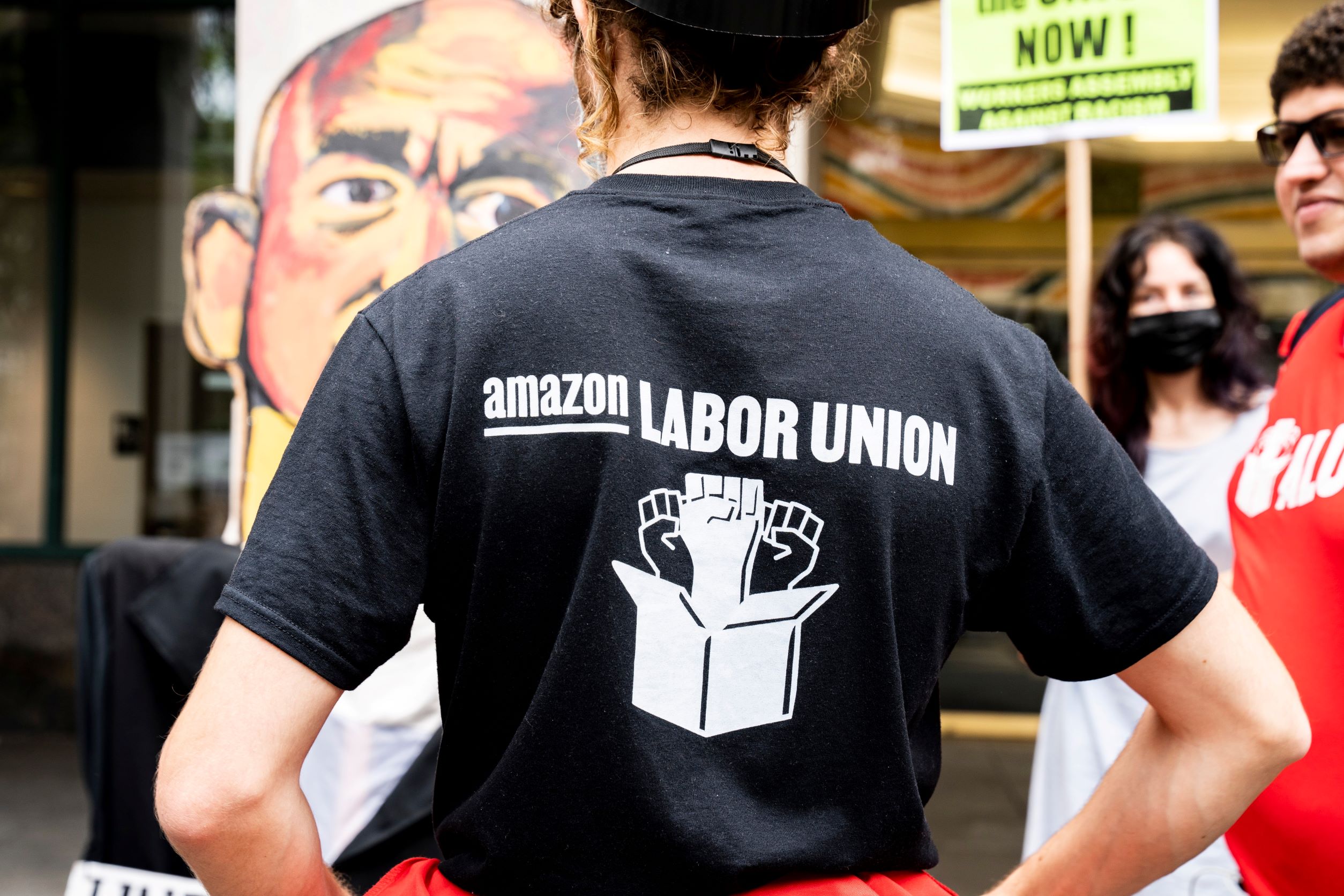Against the backdrop of a new presidential administration, an evolving workforce, and a changing economy brought about by the COVID-19 pandemic, the landscape for union organizing has radically changed over the past two years. While the nation’s attention is currently focused on unionization efforts at household names such as Amazon and Starbucks, employers of all sizes and across all industries should anticipate increased and more sophisticated endeavors to unionize their workplaces.
The time to start planning to address those efforts begins now.
Alabama Union Campaign
Alabama isn’t typically considered a union-friendly area. Nevertheless, Amazon’s Bessemer warehouse has been engaged in an all-out union organizing campaign for several months.
Approximately 6,000 warehouse employees will decide whether they want to be represented by the Retail, Wholesale, and Department Store Union (RWDSU). Voting in the union election ended on March 29, and vote counting and legal challenges concerning the election mean it may be some time before we know whether Amazon’s employees voted-in the RWDSU.
Union’s Campaign Strategy
Employees’ interest in the possibility of unionization persisted despite Amazon’s recent increase in hourly wages and its promise to retrain the workforce. By all accounts, workplace safety standards, workloads, breaks, compensation, and employee monitoring were the main issues pressed by union supporters.
For the campaign, the RWDSU used a more sophisticated and multifaceted approach aimed at an evolving workplace and workforce. In addition to traditional methods (e.g., keeping a physical presence outside the warehouse, leafletting, and making telephone calls), the union established an informational website for employees to access.
As part of the push, the RWDSU also allied itself with community leaders and organizations who supported unionizing the Amazon facility. In some instances, the community players took an active part in the union campaign.
Future Union Campaigns for Employers
In coming months, a substantial uptick in union organizing efforts for other employers will be fueled by a number of economic, cultural, and political factors:
First, the coronavirus pandemic caused many individuals to experience job elimination or insecurity. It also brought into a sharper focus for employees the subjects of workplace safety and hygiene.
Second, the past year’s civil rights movements and other political/societal developments have transformed many workers into activists. Changing company policies and practices to improve the workplace and employees’ quality of life has become a common theme for some workers. Increasingly, they are receptive to using unions as a way to address concerns and achieve the goals.
Phillip Wilson, a labor relations expert and president of the Labor Relations Institute, a leading full-service labor and positive employee relations consulting firm, confirms a sea change in employee attitudes toward unionization is already upon us and that employers should be prepared to take action:
Over the last several decades, unions have been in decline because the average worker wasn’t buying what organizers were selling. But that’s changed. The pandemic and massive economic uncertainty create a perfect storm where a younger, technically savvy, “don’t bore me with the facts” workforce sees little left to lose. Unions find themselves in a world where their traditional messages and promises suddenly hit the mark. And they are taking full advantage.
Finally, we can’t forget changes to the political environment. The Biden administration’s Department of Labor (DOL) and National Labor Relations Board (NLRB) will be markedly pro-labor.
In March, the U.S. House passed the Protecting the Right to Organize (PRO) Act, which would make it easier for unions to organize nonunion employers and would significantly limit an employer’s ability to combat the campaigns in their workplaces. If some version of the PRO Act ultimately passes Congress, President Joe Biden has pledged to sign it into law.
Wake-Up Call
While large companies such as Amazon and Starbucks make attractive targets for union organizers, they’re only the tip of the iceberg. What’s happening with Amazon in Bessemer isn’t an isolated event.
Even if the RWDSU loses in Alabama, you shouldn’t expect unionization efforts in other states or other industries to stall or lose steam. In fact, it’s possible the push may have the opposite effect. Economic, cultural, and political factors will drive employees’ interests in unions and the possibility of unionizing their workplaces.
In today’s world, complacency isn’t an option for employers. When it comes to union avoidance, be proactive. That means assessing whether you are vulnerable to organizing efforts, training your supervisors, and effectively and candidly communicating with your employees.
Charlie Plumb is an attorney with McAfee & Taft in Tulsa, Oklahoma. He may be contacted at charlie.plumb@mcafeetaft.com.

